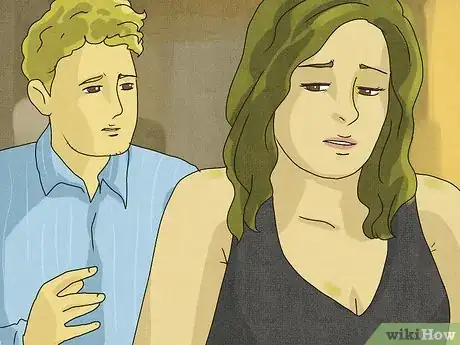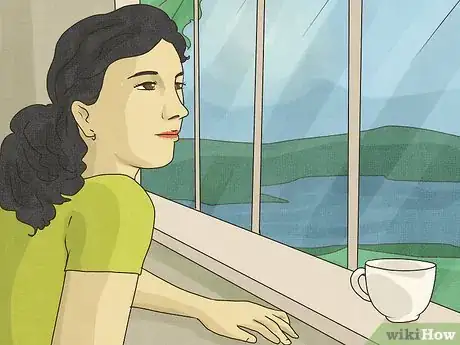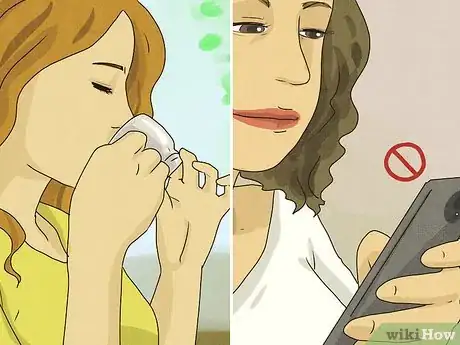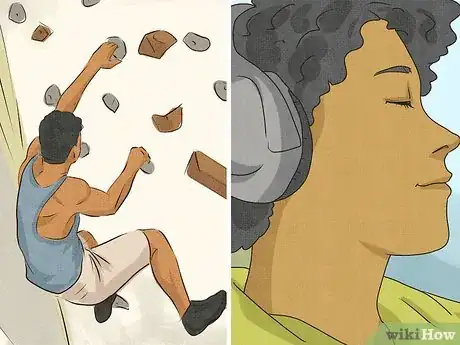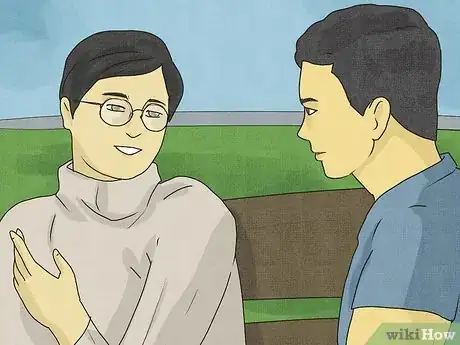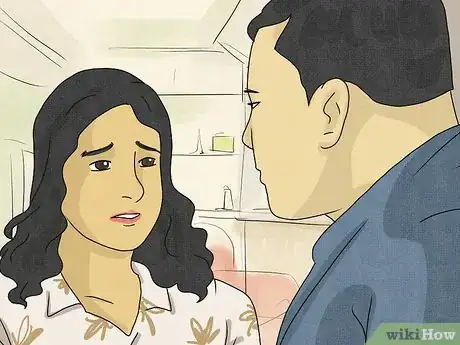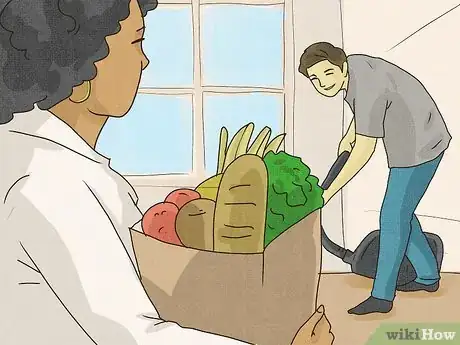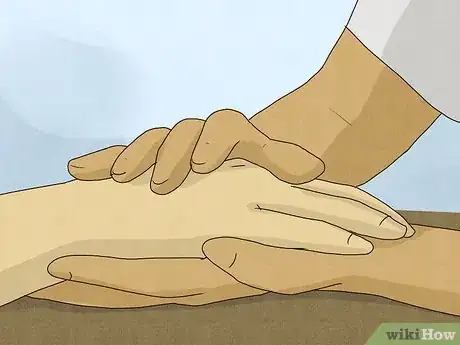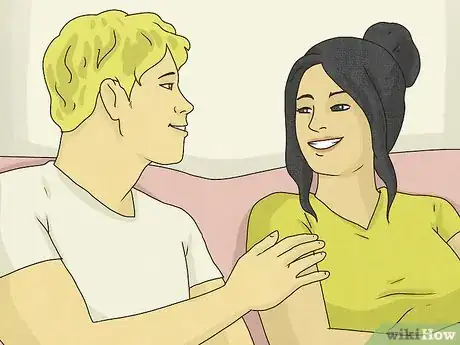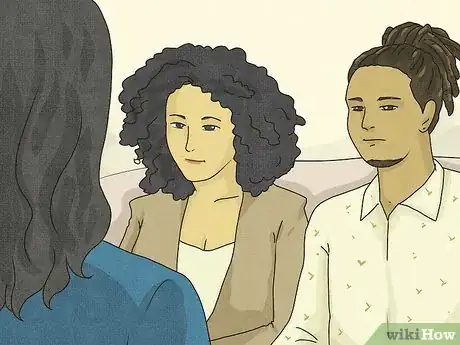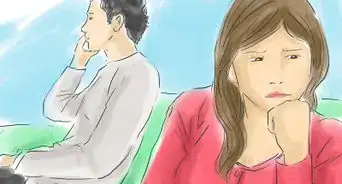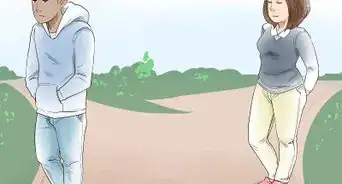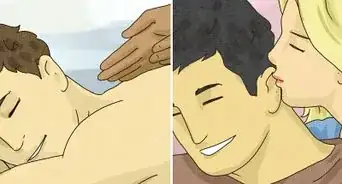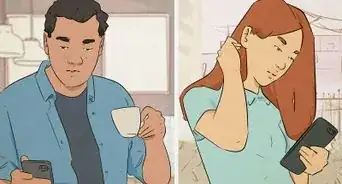This article was co-authored by Adam Dorsay, PsyD and by wikiHow staff writer, Amy Bobinger. Dr. Adam Dorsay is a licensed psychologist in private practice in San Jose, CA, and the co-creator of Project Reciprocity, an international program at Facebook's Headquarters, and a consultant with Digital Ocean’s Safety Team. He specializes in assisting high-achieving adults with relationship issues, stress reduction, anxiety, and attaining more happiness in their lives. In 2016 he gave a well-watched TEDx talk about men and emotions. Dr. Dorsay has a M.A. in Counseling from Santa Clara University and received his doctorate in Clinical Psychology in 2008.
There are 12 references cited in this article, which can be found at the bottom of the page.
This article has been viewed 76,752 times.
It can be frustrating and isolating to feel like your partner is constantly pulling away from you. You might feel like you're doing something wrong, or like you need to try harder to make them love you. However, the reason might not have anything to do with you at all. If your partner has a dismissive-avoidant attachment style, it likely goes back to their childhood. Luckily, you can help them feel more secure as you work to build intimacy in your relationship, and, ultimately, close the emotional distance between you two.
Steps
Expert Q&A
Did you know you can get expert answers for this article?
Unlock expert answers by supporting wikiHow
-
QuestionDo avoidants want to be chased?
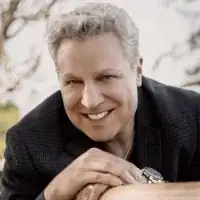 Adam Dorsay, PsyDDr. Adam Dorsay is a licensed psychologist in private practice in San Jose, CA, and the co-creator of Project Reciprocity, an international program at Facebook's Headquarters, and a consultant with Digital Ocean’s Safety Team. He specializes in assisting high-achieving adults with relationship issues, stress reduction, anxiety, and attaining more happiness in their lives. In 2016 he gave a well-watched TEDx talk about men and emotions. Dr. Dorsay has a M.A. in Counseling from Santa Clara University and received his doctorate in Clinical Psychology in 2008.
Adam Dorsay, PsyDDr. Adam Dorsay is a licensed psychologist in private practice in San Jose, CA, and the co-creator of Project Reciprocity, an international program at Facebook's Headquarters, and a consultant with Digital Ocean’s Safety Team. He specializes in assisting high-achieving adults with relationship issues, stress reduction, anxiety, and attaining more happiness in their lives. In 2016 he gave a well-watched TEDx talk about men and emotions. Dr. Dorsay has a M.A. in Counseling from Santa Clara University and received his doctorate in Clinical Psychology in 2008.
Licensed Psychologist & TEDx Speaker
-
QuestionHow do you know your attachment style?
 Adam Dorsay, PsyDDr. Adam Dorsay is a licensed psychologist in private practice in San Jose, CA, and the co-creator of Project Reciprocity, an international program at Facebook's Headquarters, and a consultant with Digital Ocean’s Safety Team. He specializes in assisting high-achieving adults with relationship issues, stress reduction, anxiety, and attaining more happiness in their lives. In 2016 he gave a well-watched TEDx talk about men and emotions. Dr. Dorsay has a M.A. in Counseling from Santa Clara University and received his doctorate in Clinical Psychology in 2008.
Adam Dorsay, PsyDDr. Adam Dorsay is a licensed psychologist in private practice in San Jose, CA, and the co-creator of Project Reciprocity, an international program at Facebook's Headquarters, and a consultant with Digital Ocean’s Safety Team. He specializes in assisting high-achieving adults with relationship issues, stress reduction, anxiety, and attaining more happiness in their lives. In 2016 he gave a well-watched TEDx talk about men and emotions. Dr. Dorsay has a M.A. in Counseling from Santa Clara University and received his doctorate in Clinical Psychology in 2008.
Licensed Psychologist & TEDx Speaker
-
QuestionCan you be a mix of attachment styles?
 Adam Dorsay, PsyDDr. Adam Dorsay is a licensed psychologist in private practice in San Jose, CA, and the co-creator of Project Reciprocity, an international program at Facebook's Headquarters, and a consultant with Digital Ocean’s Safety Team. He specializes in assisting high-achieving adults with relationship issues, stress reduction, anxiety, and attaining more happiness in their lives. In 2016 he gave a well-watched TEDx talk about men and emotions. Dr. Dorsay has a M.A. in Counseling from Santa Clara University and received his doctorate in Clinical Psychology in 2008.
Adam Dorsay, PsyDDr. Adam Dorsay is a licensed psychologist in private practice in San Jose, CA, and the co-creator of Project Reciprocity, an international program at Facebook's Headquarters, and a consultant with Digital Ocean’s Safety Team. He specializes in assisting high-achieving adults with relationship issues, stress reduction, anxiety, and attaining more happiness in their lives. In 2016 he gave a well-watched TEDx talk about men and emotions. Dr. Dorsay has a M.A. in Counseling from Santa Clara University and received his doctorate in Clinical Psychology in 2008.
Licensed Psychologist & TEDx Speaker You'll typically have a dominant style in most of your relationships. However, that might vary, depending on the relationship. With some people, you might be very secure, with others you might be anxious, and with some people you might be detached. It depends on the stage of the relationship and the situation at hand.
You'll typically have a dominant style in most of your relationships. However, that might vary, depending on the relationship. With some people, you might be very secure, with others you might be anxious, and with some people you might be detached. It depends on the stage of the relationship and the situation at hand.
References
- ↑ Adam Dorsay, PsyD. Licensed Psychologist & TEDx Speaker. Expert Interview. 11 April 2019.
- ↑ https://www.psychologytoday.com/us/blog/compassion-matters/201904/do-you-or-your-partner-have-avoidant-attachment-pattern
- ↑ https://www.spsp.org/news-center/blog/carvallo-gabriel-dismissive-avoidants-belonging
- ↑ https://psychcentral.com/blog/love-matters/2018/07/18-ways-to-increase-intimacy-and-communication-with-an-avoidant-partner
- ↑ https://psychcentral.com/blog/love-matters/2018/07/18-ways-to-increase-intimacy-and-communication-with-an-avoidant-partner
- ↑ https://www.psychologytoday.com/us/blog/the-freedom-change/201802/dismissing-attachment-and-the-search-love
- ↑ https://relatefoundation.com/blog/proven-ways-grow-closer-avoidant-partner/
- ↑ https://www.psychologytoday.com/us/blog/the-freedom-change/201802/dismissing-attachment-and-the-search-love
- ↑ https://psychcentral.com/blog/love-matters/2018/07/18-ways-to-increase-intimacy-and-communication-with-an-avoidant-partner
- ↑ https://psychcentral.com/blog/love-matters/2018/07/18-ways-to-increase-intimacy-and-communication-with-an-avoidant-partner
- ↑ https://www.psypost.org/2020/05/existential-isolation-is-more-associated-with-avoidant-than-anxious-attachment-study-finds-56856
- ↑ https://relatefoundation.com/blog/proven-ways-grow-closer-avoidant-partner/
- ↑ https://www.spsp.org/news-center/blog/carvallo-gabriel-dismissive-avoidants-belonging
- ↑ https://psychcentral.com/blog/love-matters/2018/07/18-ways-to-increase-intimacy-and-communication-with-an-avoidant-partner
- ↑ https://relatefoundation.com/blog/proven-ways-grow-closer-avoidant-partner/
- ↑ https://psychcentral.com/blog/love-matters/2018/07/18-ways-to-increase-intimacy-and-communication-with-an-avoidant-partner
- ↑ https://www.aconsciousrethink.com/15107/dating-and-relationship-with-an-avoidant-partner/
- ↑ https://relatefoundation.com/blog/proven-ways-grow-closer-avoidant-partner/
- ↑ https://psychcentral.com/blog/love-matters/2018/07/18-ways-to-increase-intimacy-and-communication-with-an-avoidant-partner
- ↑ https://greatergood.berkeley.edu/article/item/how_to_stop_attachment_insecurity_from_ruining_your_love_life
